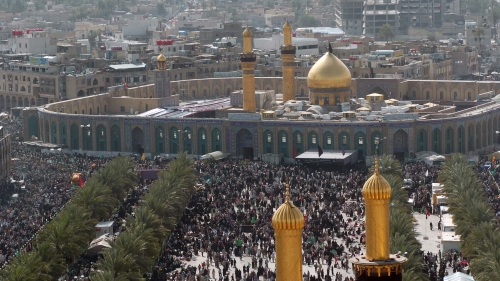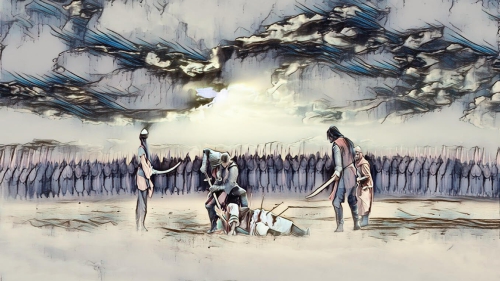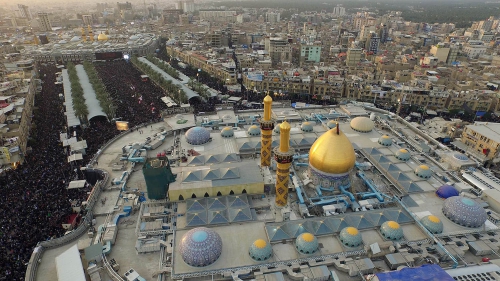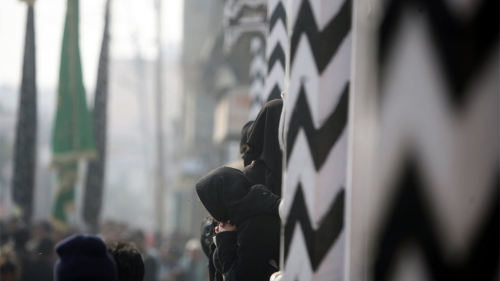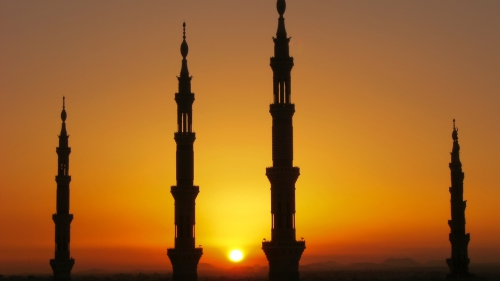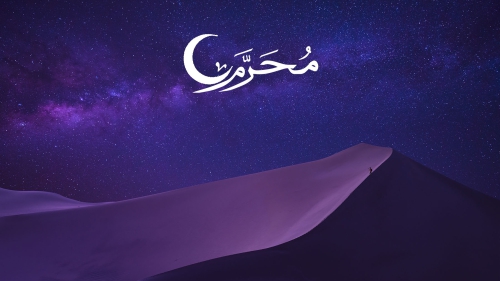Muharram and Sectarian Politics

On August 20, 2020, the 1442 of the Hijra will begin in the Muslim world. People will congratulate each other and celebrate with little concern about the plight of Muslims in different parts of the world. Those who take pride in calling them Sunnis will focus on the migration of Prophet Muhammad (Peace Be Upon Him) from Makkah to Medina in 622 C.E., and those who describe them as supporters or Shia's of Ali, will mourn the martyrdom of Imam Hussein, the grandson of the Prophet in Karbala.
There is an inherent link between the Hijra and the martyrdom of the grandson of the Prophet. Yet, the religious leaders, in cohort with rulers, in general, have made every effort to promote divisions within the community.
Hijra was to protect religious freedom, and dignity of humans for a society that respects justice, equality, and fairness. The martyrdom was to eliminate despotism, the law of primogeniture, and fascism to create a culture that values liberty, balance, and freedom.
Imam Hussein lived the legacy of his grandfather when he challenged the tyrant and established the Quranic rule that life is sacred. Still, when the objectives of life are under threat, martyrdom becomes essential to remind the generations of the significance of justice, liberty, and pursuit of happiness.
Among Shias, the first 10 days of Muharram are crucial. They hold assemblies and retell the stories of martyrdom of Imam Hussein, describe the virtues of Prophet's families, and in some cases, curse those who betrayed them and who usurped the right of the Prophet's cousin and son in law to succeed him. They reassert that Imam Ali was the right political and spiritual successor of the Prophet and not Abu Bakr, the father in law of the Prophet. In several parts of the world, the Shias also hold passion plays repeating the events that led to the martyrdom of Imam Hussein.
Sunnis celebrate the new year by taking out processions, distributing sweets, and holding conferences on Hijra. In South Asia, and the Caribbeans, some communities hold parades with Taziya, miniature mausoleums of Karbala, generally made of colored paper and bamboo.
For Sunnis, Muharram is the month of celebration, and for Shias, it is a month of mourning.
As long as the two communities do not reconcile their approach to relate with the beginning of the new year, their differences will continue to create further separation among them. Every Muharram will open the old wounds, and every night will escalate conflict because those who killed Imam Hussein claimed to be Muslims.
Imam Hussein's martyrdom is a sad reflection on earlier Muslim rulers and scholars, a silence that has continued to prevail even after the fourteenth centuries. Through their support and quietness, the scholars legitimized tyranny, despotism, violation of the Quran, disrespect of the Prophet's legacy, and destruction of human rights and justice. They laid the tradition of oppression that continues in the attitude of everyone who claims to lead Muslims. They killed the grandson of Prophet in the battlefield of Karbala and killed Islam's spirit to create a new world based on justice and equality.
The divisive approach that Shia and Sunnis have adopted to observe the month of Muharram must change to revive the essence of Hijra and the martyrdom.
Shia's should focus on the essence of the martyrdom of Imam Hussein. They should replace cursing with a genuine critique of the silence and support of scholars for the oppression. Cursing and cussing do not serve any purpose except for heightening tensions and increasing hostilities. They should open their assemblies to Sunnis, inviting their scholars and leaders to address the audience on justice and equality issues.
On the other hand, Sunnis should not view martyrdom in the context of the clan politics of Arabs. Imam Hussein is more representative of the legacy of the Prophet than anyone else not because he was the grandson of the Prophet, but because he received the Prophet's guidance in a manner no one else did. The Prophet loved him. The love of those loved by the Prophet is part of our faith. The Sunnis need to recognize Imam Hussein's struggle for justice and against despotism as a genuine understanding of the Quran and not as a political ambition. They have to state that the law of primogeniture adopted by the founder of the Ummayad dynasty violated the Quranic principle of governance. They must make a difference between the respect of a companion of the Prophet and respect of the policies the Prophet lived. Muawiyas, as a companion, is different than Muawiya as a ruler, not upholding Islamic principles. The Quran demands that the truth must precede everything else. Muawiya's role in expanding the Ummayad empire was at the cost of the growth of genuine Islam.
They can make Muharram a month dedicated to Hijra and martyrdom for justice, equality, and liberty. In the first ten days of this month, they, along with Shias, can remember the sacrifice and the movement to establish justice.
There is a lot of politics in the Shia-Sunni conflict. Saudi Arabia, with the help of Salafis, describes Shias as a deviant and non-Islamic group. With the support of its religious clergy, Iran denounces all Sunnis as part of the conspiracy and action against Imam Hussein. Their prejudices, based on their tribalism, politics, and ambitions to claim the leadership of Islam, have promoted the hostilities.
As explained and defined by rulers and their salaried clergy, Islam and the Quran will never allow Muslim masses to come together for justice, equality, and liberty for all. There is a need for an independent initiative by Muslims at the grassroots level. The religious establishment of Shias and Sunnis will not allow this to happen. Their survival depends on the conflict and hostilities. Their livelihood comes from hatred towards each other. Only those who have the innocence of love and respect for the Quran, its eternal universal principles of justice, equality, and freedom and who see the divine faith above their race, sect, and politics can take this initiative.
Let us hope that we change our paradigm of looking at this issue.
Topics: Hijrah (Migration), History, Imam Hussain, Islamic Calendar, Muharram, New Year, Prophet Muhammad (S), Shia-Sunni Relations
Views: 3630
Related Suggestions







